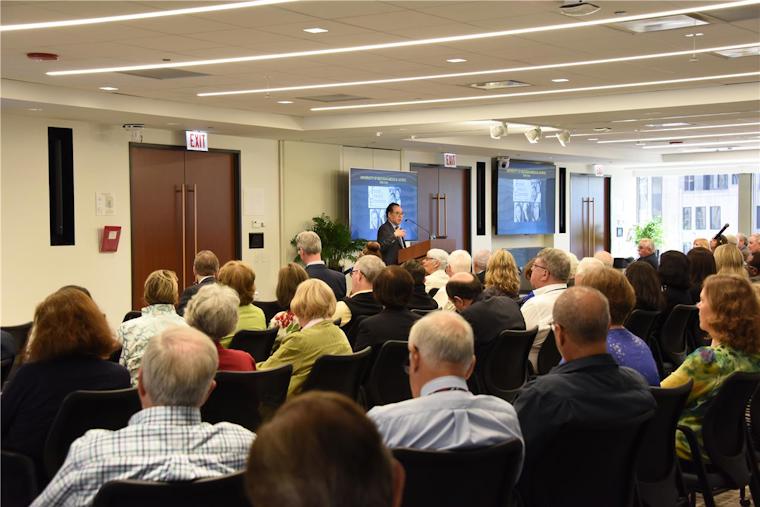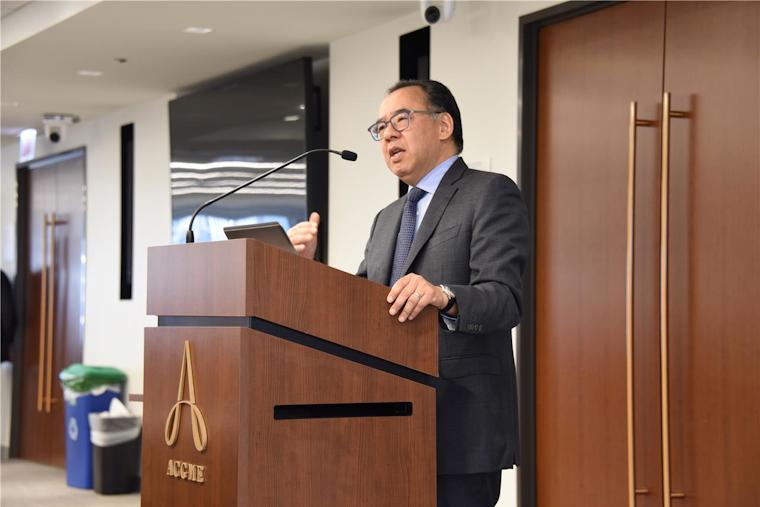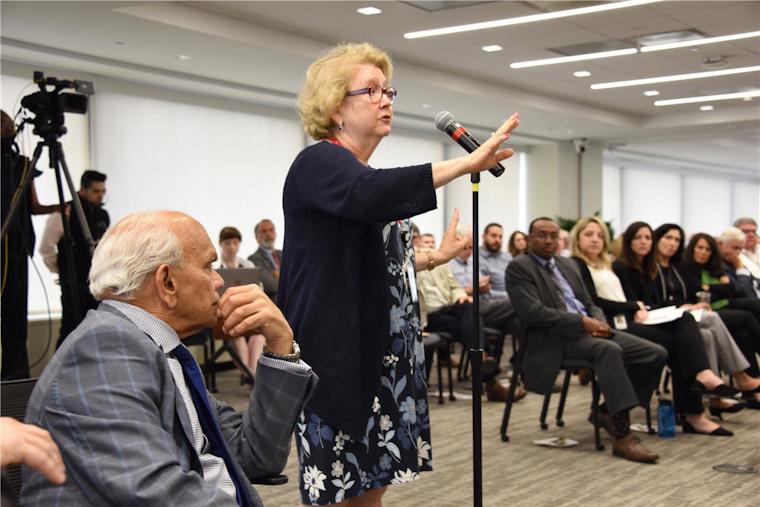Physician educators must explore ways to teach physicians to practice with excellence, compassion, and justice, Dr. Arno K. Kumagai argued at the most recent Baldwin Seminar, the first of the 2019-2020 season. His talk, Reflection, Dialogue and Different Ways of Knowing: Beyond the Competency Paradigm in Medical Education, took place June 26 at the ACGME offices in Chicago, and was livestreamed.
Focus on Person-Centered Care
Dr. Kumagai, professor and vice chair for education in the Department of Medicine and F.M. Hill Chair in Humanism Education at Women's College Hospital at the University of Toronto, prefers “person-centered care” over “patient-centered care” because “it defines the person as an entire human being with all of who they are.” When physicians view and engage with patients not just as symptoms, test results, and diagnoses, they can acknowledge them with more compassion and understanding, which leads to better patient outcomes.
Part of this, he said, is listening to patients’ stories, which reveal how they relate to their illness. When physicians frame medicine as a strictly scientific “problem” to solve, they miss deeper ways to understand and relate to patients.
“We are not scientists,” Dr. Kumagai said. “We are people who use science for the betterment of human beings.”
Teaching Person-Centered Care
Dr. Kumagai outlined three types of knowledge:
- Technical: objective, scientific control over natural processes
- Practical: action oriented within traditions and norms, like standards of practice
- Emancipatory: reflective, subjective knowledge to meet human needs; professionalism, multiculturalism, medical ethics, and the doctor-patient relationship
Emancipatory knowledge is the best for achieving person-centered care, Dr. Kumagai said.
“If you look at medical education as a process of transformation, not only from medical student to physician, but from someone who can take this empathy and this idealism they have and fashion it into a tool for healing, to look at it in that context, of transformation of change, these dialogues become critical as the building blocks of professionalism.”
To cultivate emancipatory knowledge in residents and fellows, Dr. Kumagai stressed that education must create space for meaningful dialogue and reflection. While lecture and discussion emphasizes an authority presenting objective solutions, the dialogue necessary to cultivate emancipatory knowledge is a subjective exchange.
“It’s about human relationships, and it’s about human feeling,” he said.
Dr. Kumagai suggests educators “slow things down so we have a moment to reflect and a moment to talk.” In practice, this means posing paradoxes, telling open-ended stories about difficult ethical moments, letting students ponder what they would do, instead of “giving them the answer.”
The obvious challenge is that the fast-paced and overwhelming clinical learning environment does not support that, he acknowledged.
Measuring Person-Centered Care
To measure this qualitative, individualized knowledge, Dr. Kumagai suggests evaluating learners through dialogue, direct observation of patient interactions, patient feedback, in-the-moment verbal reflections, and reflective writing. The resulting assessment should value authenticity over reproducibility and standardization, he said.
During the Q&A following his talk, ACGME Vice President, Milestones and Evaluation Dr. Stanley Hamstra engaged Dr. Kumagai in a dialogue about whether the ACGME’s Milestones
Competencies address these needs.
“The idea of competency has a really important role in education. Clinical skills, no question,” Dr. Kumagai said, but in areas of professionalism or communication skills, he believes it’s not possible to fully measure students by checking a box. Dialogue is necessary for program directors to actually assess this abstract concept.
The ACGME’s Baldwin Seminar Series is offered free of charge, and continuing professional development (CME) is available. Dr. Kumagai’s presentation can be viewed through July 26. Click the link to register, or visit the web page. Physicians can earn 1.5 AMA PRA Category 1 creditsTM.
The next presentation will be October 16 from 9:30-11:00 a.m. Central. E-mail cme@acgme.org to join the invitation mailing list.






